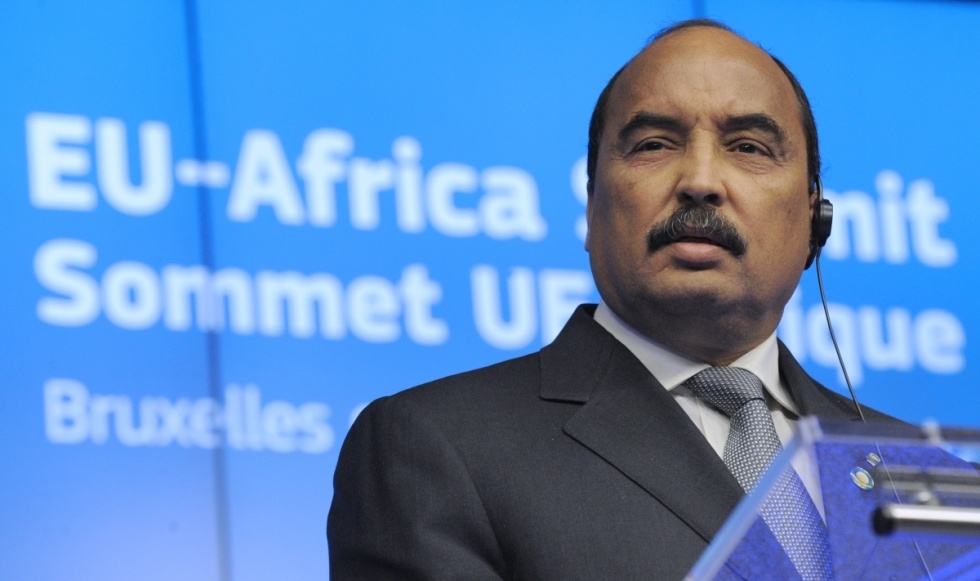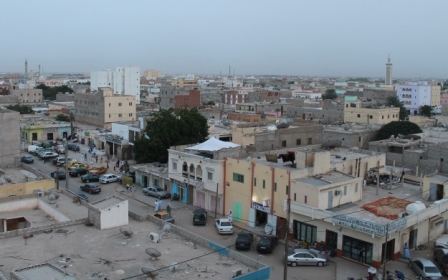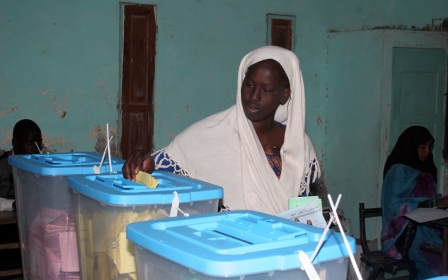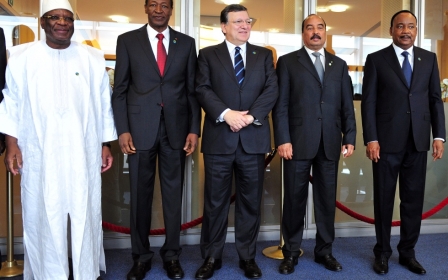Five candidates vie for presidency of Mauritania

Mauritanian leader Mohamed Ould Abdel Aziz will face four other candidates in presidential elections scheduled for 21 June, the constitutional court confirmed on Tuesday.
Court officials said Lalla Mariem Mint Moulaye Idriss, who is the second woman to run for office in the country’s history, will stand alongside opposition party leaders Boidiel Ould Houmeid and Ibrahima Moctar Sarr as well as anti-slavery activist Biram Ould Dah Ould Abeid.
Idriss, head of the country’s official Mauritanian news agency AMI, and Ould Abeid will stand as independent candidates.
Ould Abeid, a descendant of slaves himself, has won international recognition for leading efforts to combat slavery in a country where it still exists despite an official ban more than 30 years ago.
He founded the Initiative for the Resurgence of the Abolitionist Movement in 2008 and was arrested in 2012 for taking part in a demonstration where protestors burned legal texts of the Maliki school, a school of Islamic law the protestors said justify slavery. President Abdel Aziz, who he now stands against, pardoned him and he apologised for the incident.
The constitutional court rejected the candidacies of businessman Alioune Ould Bouamatou, for reasons that remain unclear, and stated Bar Council president Ahmed Salem Ould Bouhoubeini had withdrawn from standing.
Ould Bouhoubeini, a member of opposition coalition the National Forum for Democracy and Unity, announced his withdrawal last week in protest over the "non-transparency" of the election.
The coalition combines Islamist movement Tewassoul and another smaller grouping, the 10 parties of the Coordination of Democratic Opposition, which boycotted parliamentary and local elections last year.
The People’s Progressive Alliance, another opposition group, has also announced they will boycott the presidential election.
President Abdel Aziz is a former army general who took power in a coup during August 2008 and was elected in 2009 for a five-year term.
Middle East Eye propose une couverture et une analyse indépendantes et incomparables du Moyen-Orient, de l’Afrique du Nord et d’autres régions du monde. Pour en savoir plus sur la reprise de ce contenu et les frais qui s’appliquent, veuillez remplir ce formulaire [en anglais]. Pour en savoir plus sur MEE, cliquez ici [en anglais].




